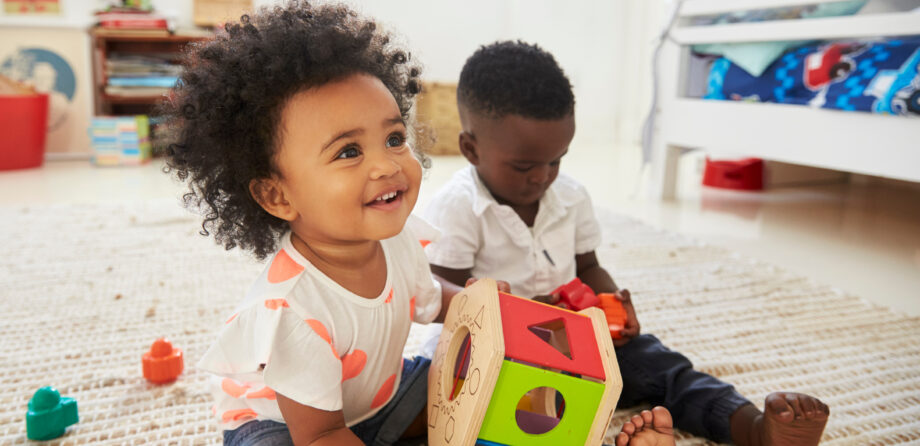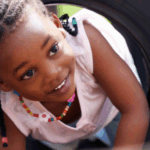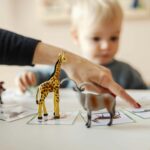
Learning through play in early years
Why play matters
For young children, play isn’t a break from learning, it is learning. Through play, children test ideas, practise new skills and new words, develop friendships, take risks, and generally make sense of the world. Neuroscience research tells us that when children are curious, joyful, and active, their brains form stronger connections. Play builds brains.
The Education Endowment Foundation (EEF) emphasise what makes learning through play work -high-quality back-and-forth conversation, sustained shared thinking, and sensitive scaffolding so activities are at the right level – neither too easy nor too difficult. All this turns a trayful of water into a place to explore and discover science, a home corner into a rich language space, and a block area into rich maths talk.
Janet Moyles informs us that play, “‘instils characteristics such as flexibility and creativity and ensures that children acquire positive earning dispositions and use new knowledge, skills and understanding.” (Play and early years: Birth to seven, Moyles, 2013). In her research, Moyles talks about children’s entitlement to play and playful teaching. (Just playing? The role and status of play in early childhood education, 1989)
Ben Kingston-Hughes, in his book A Very Unusual Journey into Play (2022), reminds us that play is not optional, it’s innate. Children are biologically driven to play because it serves vital developmental functions. Skipping, for example, doesn’t simply look joyful, it strengthens bone density. Spinning around outside isn’t just silliness, it develops the vestibular system and balance. What might seem like ‘messing around’ is in fact the body and brain doing essential work. Kinston-Hughes challenges us to reframe play not as wasted time, but as nature’s way of ensuring children develop and thrive.
Practitioner’s role
Even though play is innate and driven by powerful biological factors, practitioners are uniquely placed to make play truly meaningful for learning – by shaping environments, knowing when to intervene/join in sensitively, and extending children’s ideas and language. Here are a few starting points to make the most of children’s play:
1. Prioritise rich, open-ended resources. A stick, for example, can be a fishing rod, a magic wand, an element of construction, a drawing tool, or umpteen other things
2. Allow children to lead and follow their interests – supplying relevant resources and match their enthusiasm
3. Be intentional, not controlling. Set learning outcomes but let children get there in their own way fuelled by their curiosity and your support
4. Enhance language development. Narrate what you see. Use language to highlight what’s happening, for example, “you’ve worked together to solve that problem,” or “That’s an interesting shape you’ve built, it looks like a triangle.” Extend vocabulary, for example, talk about “balancing,” “stability,” or “taller/shorter” during block play. Introduce words like “capacity” or “volume” during water play
5. Create an enabling environment. Ensure the space is safe, well-organised and accessible. Include resources that reflect the diverse backgrounds and languages of all your children, helping every child feel recognised and valued in play
6. Take it outdoors. Provide opportunities for climbing, running, balancing, and exploring nature. Outdoor play supports physical development, problem-solving, opportunities for risk-taking, developing resilience, and teamwork.
Quality teaching
In conclusion, play is integral to children’s learning and development and practitioners need to be able to offer all children high quality play experiences as well as have a strong, robust knowledge of child development, plus an understanding of the way in which children learn.
If you’d like to discover more about learning through play and quality teaching in early years, our Quality Teaching online course is for you. You’ll:
- Identify key skills of being a successful practitioner
- Select key elements of teaching in early years
- Recall key play theorists and their contribution to play.
See our Quality Teaching in Early Years online course
- EYFS
- Learning through play
- PSED
- Training
Similar Articles
Early years activity: Mini movers obstacle challenge

Top tips: Inclusion in action


